Reflections of UCT’s Future Leaders
23 November 2020 | Story Niémah Davids. Read time 7 min.
It’s been two years since the University of Cape Town’s (UCT) vice-chancellor (VC), Professor Mamokgethi Phakeng, launched the university’s 2030 Future Leaders programme. The group of up-and-coming researchers are considered leaders in their fields and have been handpicked by the UCT executive.
The members of the Future Leaders cohort were selected owing to their strong scholarship and on traits that set them apart from other researchers in their respective fields.
“The purpose of the Future Leaders programme is to ensure that we secure a sustainable future for UCT,” said Professor Phakeng at the launch event in November 2018. “We cannot secure a sustainable future without leadership, [and] in this programme specifically, we’re looking at scholarly leadership.”
UCT News caught up with a few members of the cohort to get their take on the programme and how it has impacted their research and careers.
Professor Fiona Ross – anthropology
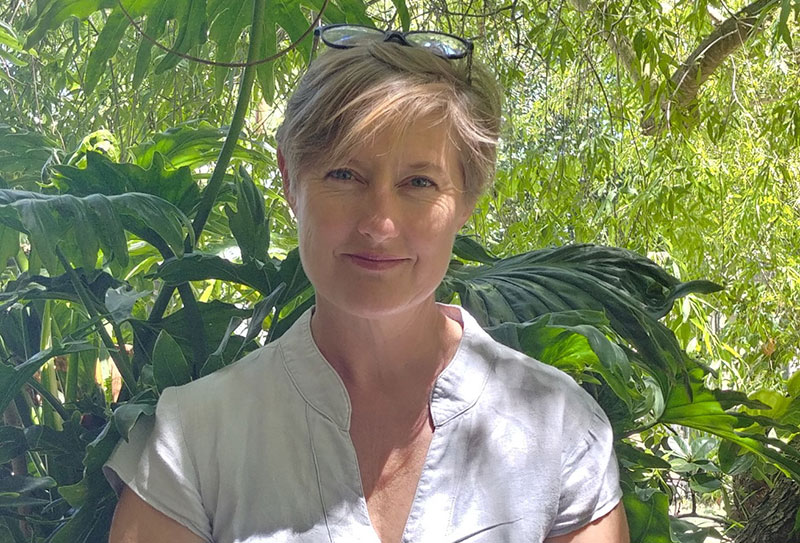
“I work in the generous nexus of anthropology, gender studies, and science and technology studies within a field more broadly framed as medical anthropology. My work has always been concerned with understanding apartheid and its enduring legacies in social life. Currently, this is focused on how we think about life in its aftermath and, in particular, what frames we use when we try to describe human world-making and well-being.
“It has been great to have an opportunity to engage with scholars across faculties.”
“It has been great to have an opportunity to engage with scholars across faculties on the Future Leaders programme. One of UCT’s tragedies is that it is really fragmented and compartmentalised, which means that we often miss out on the breadth of knowledge and expertise [at] the university. Being part of a group that crosses these boundaries is exciting … I have learnt a lot. The programme has created a forum for us to share experiences and learn from each other.
“I see my role at UCT as one of creating and supporting the next cohort of active researchers. This means training graduates and supporting them as they learn to do primary research and enter the publication world. The programme supports this work in two ways: by making scholarships available and by providing the resources to nurture young scholars. The VC’s passion for research is critical, as is her willingness to ask the difficult questions. The executive as a whole has been very supportive of research and new visions.”
Dr Geoffrey Howarth – economic geology
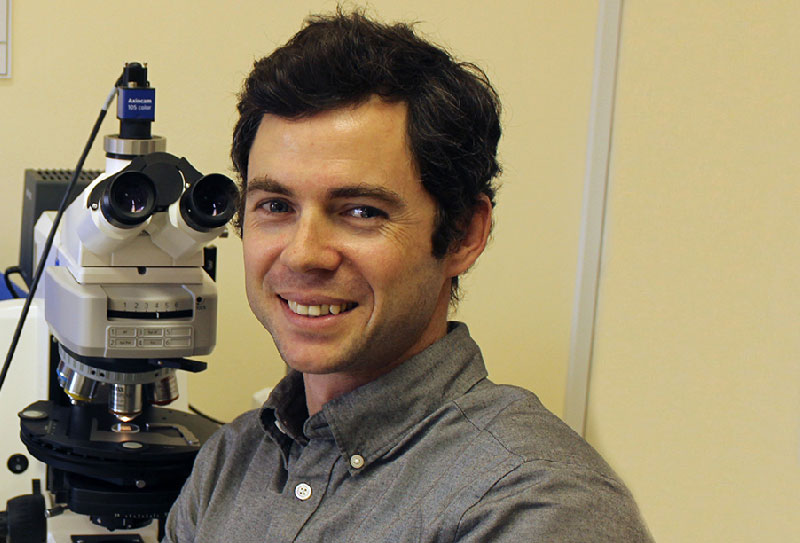
“My research focuses on a sub-discipline of geology known as igneous petrology, which links to rocks that form from magmas deep in the earth and applies to economic geology. The big questions in my field are around understanding deep earth processes.
“One of my main research goals is to develop projects related to planetary geology and specifically to the geology of Mars. This will be achieved by analysing the Martian meteorites. In 2020, thanks to the support from the Future Leaders grant, I was able to recruit my first PhD student under this project … he will be the first South African student to undertake a project related to this line of research.
“The VC really inspires me as a young researcher. Her authentic interest in engaging with members of UCT on all levels and her commitment to building an inclusive community has impacted my own purpose in the UCT community. Her interest in the challenges facing young researchers in my position and her dedication to supporting us through this programme has been encouraging.”
Associate Professor Nomusa Makhubu – fine art
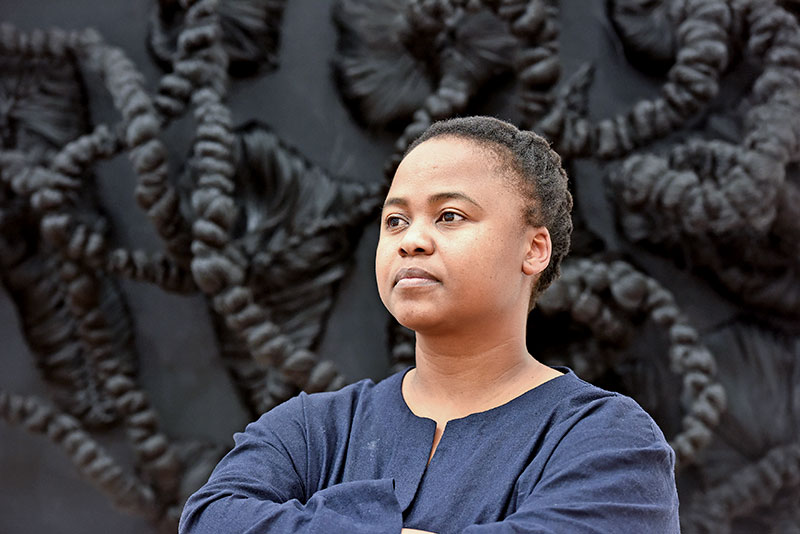
“The Future Leaders programme has been so meaningful to me. It has enabled me to achieve many of the objectives I had sought to fulfil for the Creative Knowledge Resources project. We launched the project’s website this year and have already begun some of the discursive and documentation work. I truly value being part of this cohort of scholars.”
Dr Asanda Benya – sociology
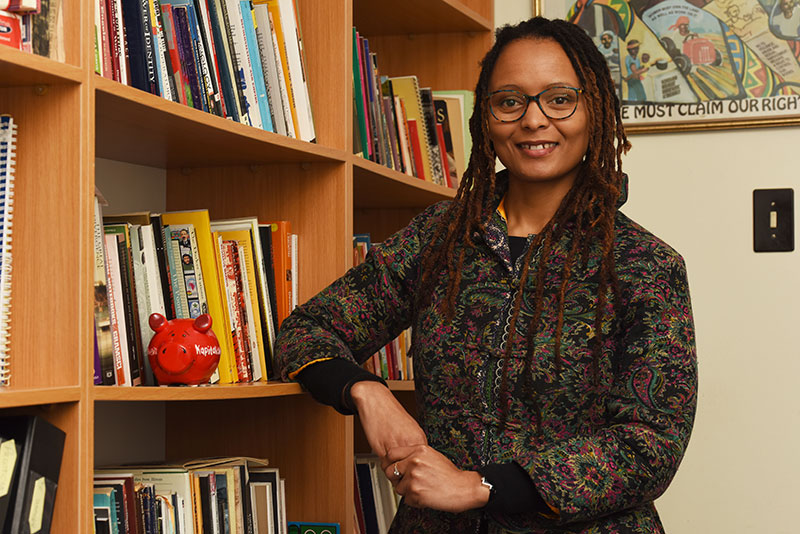
“I was brought onto the project in 2019 at a time when I was dreaming about a continent-wide project on women in mining but didn’t have the funds for it. There are so many questions that have not yet been answered about the topic, and most people who’ve started this research are from outside the continent.
“To me, the Future Leaders programme means access to people who are doing great, totally mind-blowing work in their fields. It’s also enabled me to build a wider network and community of scholars who come from different parts of the university.
“I am hoping to collaborate with some colleagues as I believe that transdisciplinary work always yields very interesting discoveries and pushes one to think differently and creatively about our work.”
Associate Professor Sudesh Sivarasu – biomedical engineering
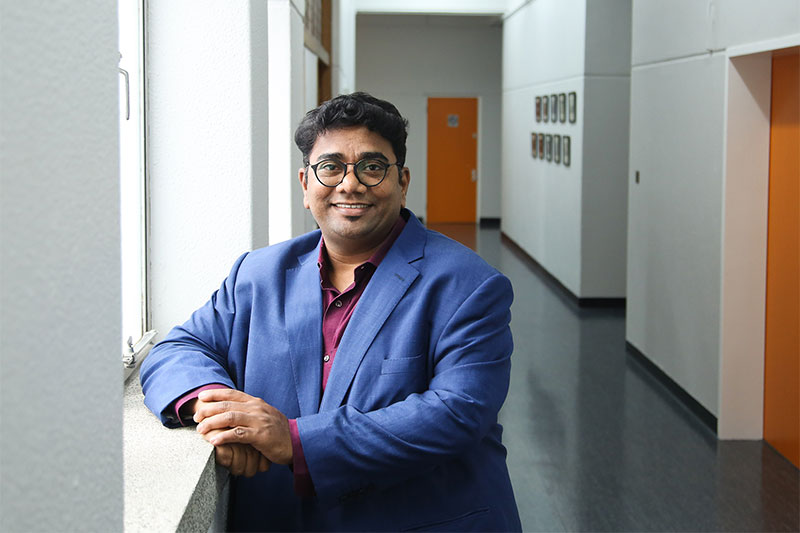
“My research is focused on inventing affordable and appropriate medical technologies (medical devices) specifically aimed at low-resourced settings. Our innovations have had local, national and international impact.
“The Future Leaders programme is one of the best things that has happened to me at UCT.”
“The Future Leaders programme is one of the best things that has happened to me at UCT. To me, it’s a promise of care by our institution; it’s an opportunity to excel and to not be bound by restrictions that most young researchers face. It’s a supplement that is necessary for high performance.
“There are tons of things I can list about our VC that I would like to emulate in my academic career. The ones that come to mind are courage, passion and foresight. She is indeed a leadership encyclopaedia.”
 This work is licensed under a Creative Commons Attribution-NoDerivatives 4.0 International License.
This work is licensed under a Creative Commons Attribution-NoDerivatives 4.0 International License.
Please view the republishing articles page for more information.




























































































































































































































































































































































































































































